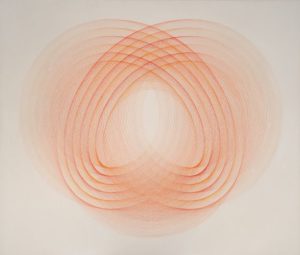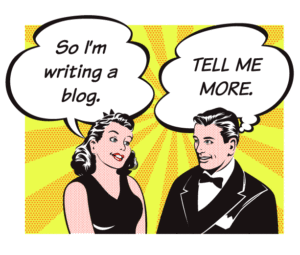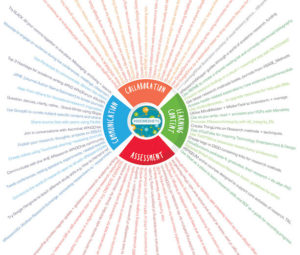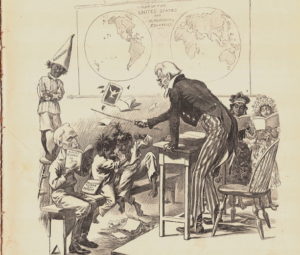Digital History
Spring 2020 • App State Dept. of History
In HIS 5595, we will analyze the changes that new media and technology tools are bringing to the field of history. The “digital shift” of the last three decades has raised interesting possibilities and questions about how we can research, write, learn, and teach about the past.
Participants will explore key theoretical and historical issues linked to this digital shift, examine the designed uses (and re-appropriations) for a variety of digital tools, and develop new skills that could prove useful for your work as historians. Students will not only engage in class discussions, but also “do” history online through social media, storytelling, visualizations, and other digital platforms.
Logistics
Class: Tuesdays 5:00-7:50 @ 240 Anne Belk Hall
Office Hours: T 8-9:30; 11-12:30 @ 220 Anne Belk Hall
Instructor: Rwany Sibaja (sibajaro@appstate.edu)
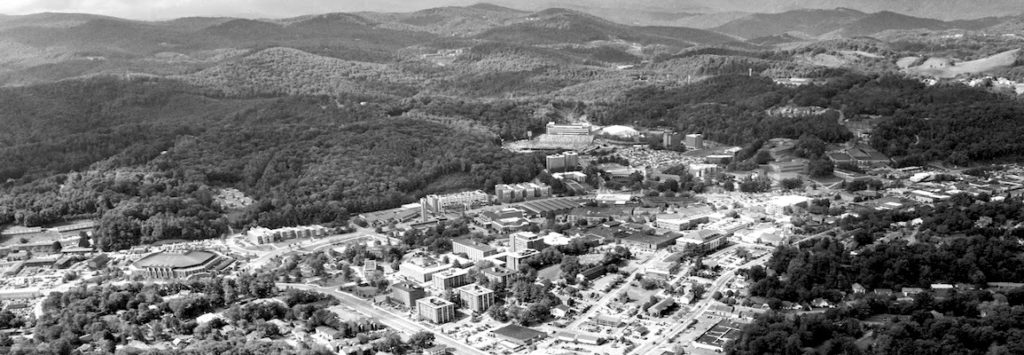
”Historical work is heavily collaborative, especially in these days of digital scholarship.” – T. Mills Kelly
In 2013, historian Mills Kelly imagined what the history curriculum would (or, at least, should) look like by the year 2023. As we enter a new decade, and approach Kelly’s arbitrary marker, it might be worthwhile to consider the degree to which the field of history has changed since he wrote the following:
“Making, Mining, Marking, and Mashing.
Yes, students will still be required to find and analyze primary sources, to form arguments, and to place those arguments (and the sources they find) into a larger conversation among scholars. But those skills alone will position our students ideally for the economy of 1993, not the economy of 2013, much less 2023. If we want to be true to ourselves as educators and true to our students’ needs and expectations, we need to admit that the skills we have been teaching them since the late 1890s are no longer sufficient preparation for the world those students will live in once they graduate.”
From the outset, Kelly acknowledges that his four approaches to historical training and scholarship – making, mining, marking, and mashing – are open to scrutiny and disagreements. Kelly also clarifies he is not proposing that historians discontinue teaching analytical writing or traditional research skills (e.g., how to locate and analyze primary sources)—both of which are foundational elements of any history curriculum.
But we should at least consider a critical point Kelly raises: we have been teaching history (both at the undergraduate and graduate levels) pretty much the same way in over 100 years; yet, the world has greatly changed over the same time span. Heck, just the changes from the last two decades are decidedly pronounced. Since 2o00, digital technology has irrevocably changed how we consume information, converse with others, schedule our day, and see ourselves as global citizens.
HIS 5595 starts with the concept of change and asks to what extent new media tools have, and continue to, reshape the field of history. More importantly, how do we change our habits when teaching, learning, and working with history. This course is thus an inherently collaborative venture … a journey that might help us re-assess why we love history in the first place.
“Good historians, like good software developers don’t study the past because we love musty old documents or to see our names in print, but because we want to solve problems.”
Quotes from: “The History Curriculum,” EdWired (2013). http://edwired.org/longform/the-history-curriculum-in-2023/
